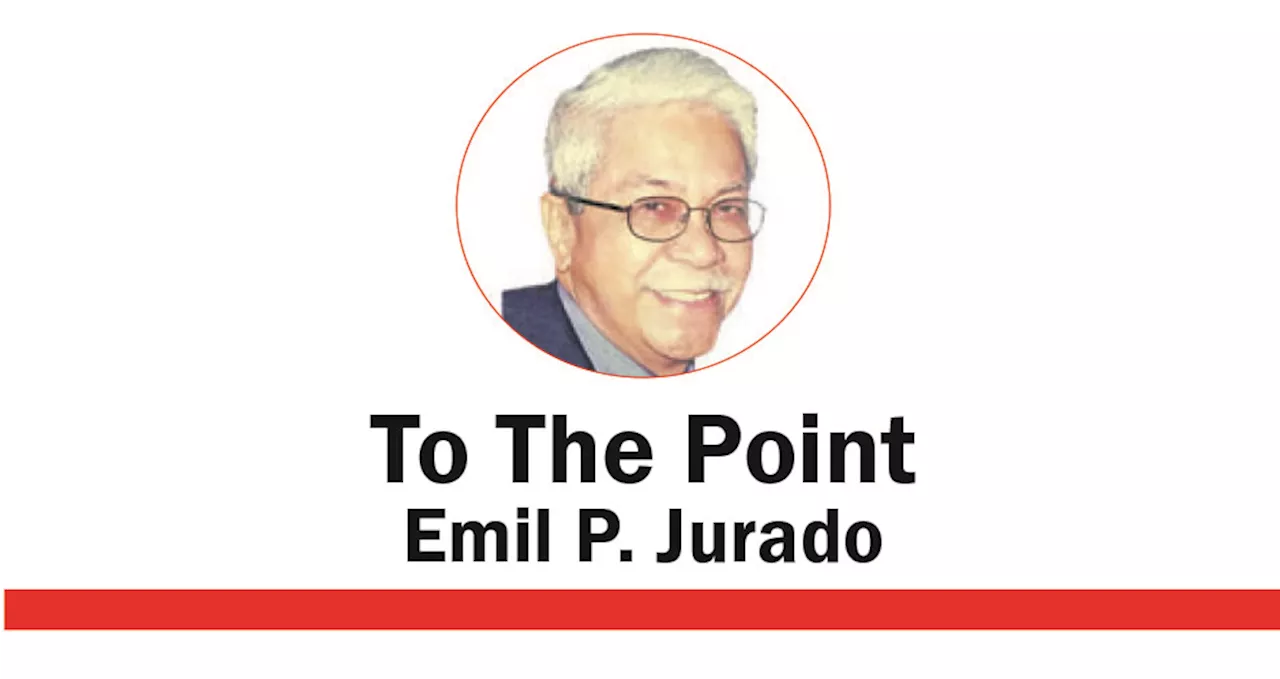This article recounts the experiences of a veteran Philippine journalist over seven decades, highlighting his role in navigating the challenges of Martial Law and his contribution to shaping the free and vibrant press landscape of the Philippines. It tells the story of his initiative to establish self-governance for broadcast media and the enduring legacy of the 365 Club, a gathering of media personalities that became a symbol of press freedom and intellectual exchange.
I am now 97 years old. In my over 70 years as a journalist, I have walked the corridors of power, seen the best and the worst of Philippine presidents, and seen history in the making. I can say with my head up that I have contributed my share to make Philippine press free and vibrant. When Martial Law was declared in 1972 by then president Ferdinand E.
Marcos, I was appointed one of the three members of the Media Advisory Council to handle media problems during Martial Law because media was then censored and curtailed. Santa Banana, I felt sorry for many of my colleagues who were then out of work because all the outlets of newspapers, radio and television were shut down. (Editor’s Note: Despite the proclamation of Martial law, foreign news services like Reuters, AP, AFP, UPI, Visnews of London, ABC News of USA, Kyodo of Japan, VOA, and other foreign-based news organizations with Manila-based correspondents were not affected although they were told to submit their reports for clearance during the first month to the then press censor Larry Cruz, the undersecretary of the Department of Public Information. After the first month, they were on their own.). Knowing my media colleagues’ predicament, I thought of an idea that would remove broadcast (radio and television) out of the ambit of Martial Law. I proposed to then Defense Secretary Juan Ponce Enrile, who will be 101 years old on Feb. 14, and now Presidential Legal Counsel of President Marcos Jr., my plan to free broadcast (radio and television) out of the ambit of Martial Law by having both go on self-rule. JPE , as Enrile is called, agreed with me, Soon enough President Marcos declared that broadcast media would be on self-rule. I then gathered members of radio and television to a meeting to organize themselves, with the idea to go on self-rule. Having thought of the self-rule idea, I was elected the first President of the gathering which was named Kapisanan ng mga Brodkaster ng Pilipinas. Our first job was to create a Code of Conduct, regulating how many minutes of advertising would go on radio and television. The advertising industry unanimously approved the Code. I must congratulate President Marcos Sr. and JPE for the go-ahead to have broadcast media go on self-rule. The advertising industry also gave its all-out support. To date, self-rule has become a by-word for both the broadcast and advertising industry. When Martial Law was declared through Proclamation 1081 at midnight of Sept . 21, 1972, I got a call from the chief of security of Channel 9, of which I was vice president, located along Roxas Boulevard. From my residence in Quezon City, I rushed to Channel 9, passing through several checkpoints heavily guarded by soldiers along EDSA. When I reached Channel 9, I saw my colleagues outside the Channel 9 building. I stayed with them until six in the morning, then I decided to go home to rest and eat. Along the way , I dropped in at the then Hotel Intercontinental Manila at the corner of EDSA and Ayala Avenue and I decided to take my breakfast at the hotel’s Jeepney Bar, the hotel’s coffee shop. Upon entering the coffee shop, I noticed a gathering of Makati Mayor Nemesio Yabut, Doroy Valencia and some businessmen. I asked them why they were all there since I noticed the Makati mayor had a duffel bag with him because he feared he would be picked up by the military. Yabut told me that for “insurance” he had Doroy Valencia beside him. Valencia then told me that from that day on, all newspapermen would have free breakfast there, courtesy of the Makati mayor. In the following days, many newspapermen came to meet there, taking not only breakfast but lunch and dinner too. As a result, Doroy told me that Yabut was already complaining about the expense. After that, all meals would be KKB, or everyone must pay their share. That was the beginning of the 365 Club, media personalities having breakfast every day at the Hotel Intercontinental coffee shop. With the death of Yabut and Ka Doroy and the others who started that breakfast gathering, I, the surviving co-founder of the 365 Club, continued the tradition. Santa Banana, would you believe the 365 Club was cited by the American newspaper The Wall Street Journal as the only club in Asia where even ambassadors attended the breakfast sessions to catch upon current events? When the COVID pandemic hit the country, we kept up with the 365 Club online through Zoom. The 365 Club had its place in Philippine press history, being a gathering of newsmen to express freely their opinions and perceptions, even during Martial Law . I am happy I was part of history, having contributed to making Philippine press freedom as vibrant as it is today
History Media PHILIPPINE JOURNALISM MARTIAL LAW PRESS FREEDOM 365 CLUB BROADCAST MEDIA JUAN PONCE ENRILE FERDINAND E. MARCOS DOROY VALENCIA HOTEL INTERCONTINENTAL MANILA MEDIA HISTORY
Philippines Latest News, Philippines Headlines
Similar News:You can also read news stories similar to this one that we have collected from other news sources.
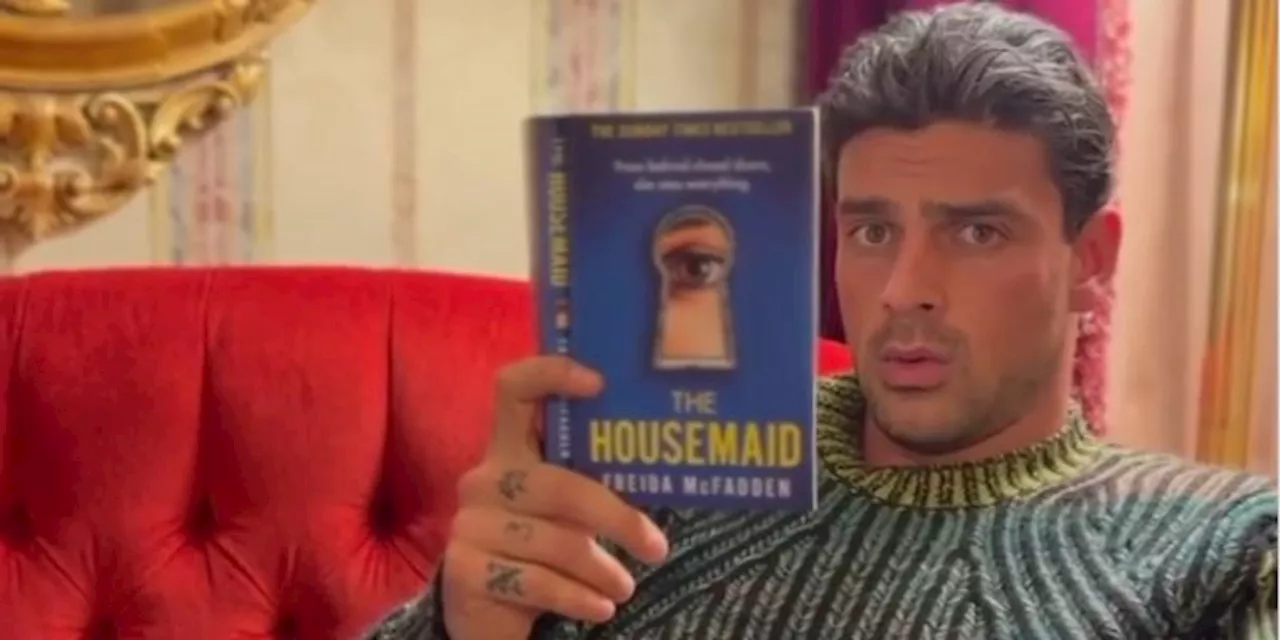 '365 Days' star Michele Morrone joins cast of 'The Housemaid'Latest Philippine news from GMA News and 24 Oras. News, weather updates and livestreaming on Philippine politics, regions, showbiz, lifestyle, science and tech.
'365 Days' star Michele Morrone joins cast of 'The Housemaid'Latest Philippine news from GMA News and 24 Oras. News, weather updates and livestreaming on Philippine politics, regions, showbiz, lifestyle, science and tech.
Read more »
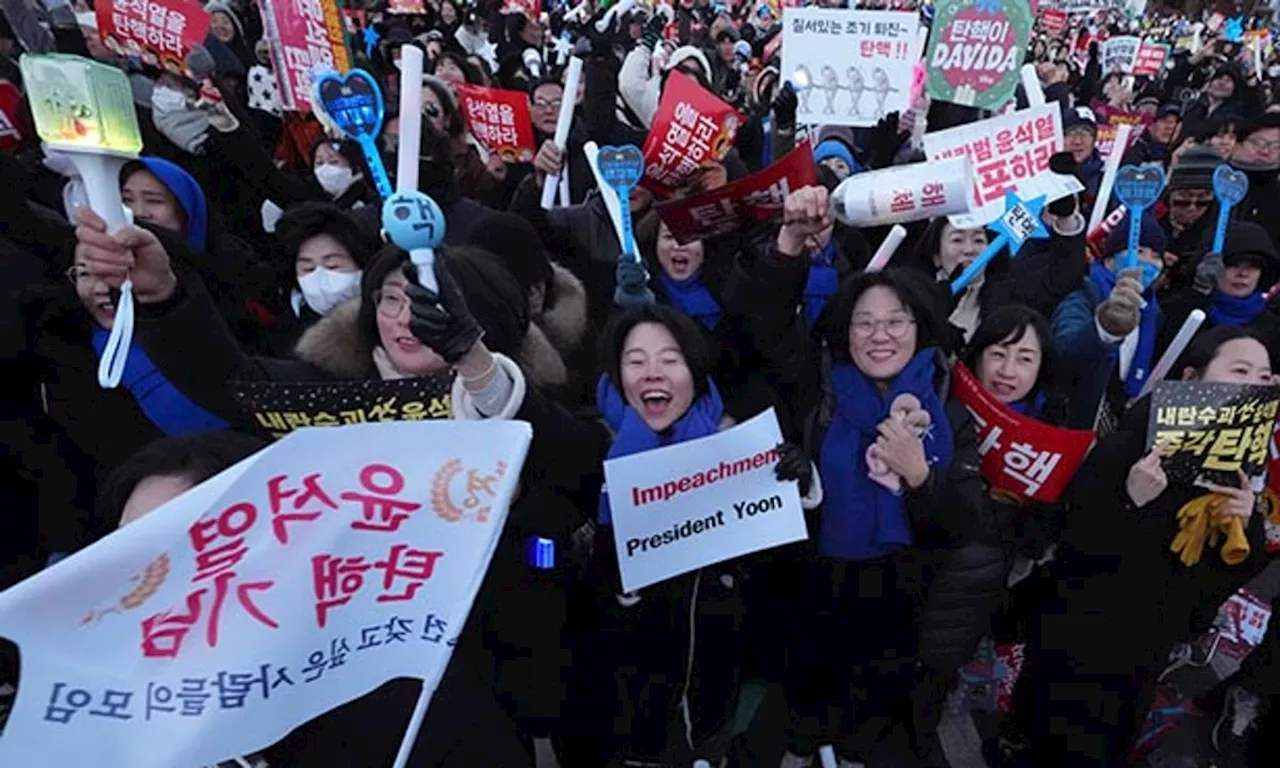 South Korea’s parliament votes to impeach President Yoon Suk Yeol over his martial law orderSunStar Publishing Inc.
South Korea’s parliament votes to impeach President Yoon Suk Yeol over his martial law orderSunStar Publishing Inc.
Read more »
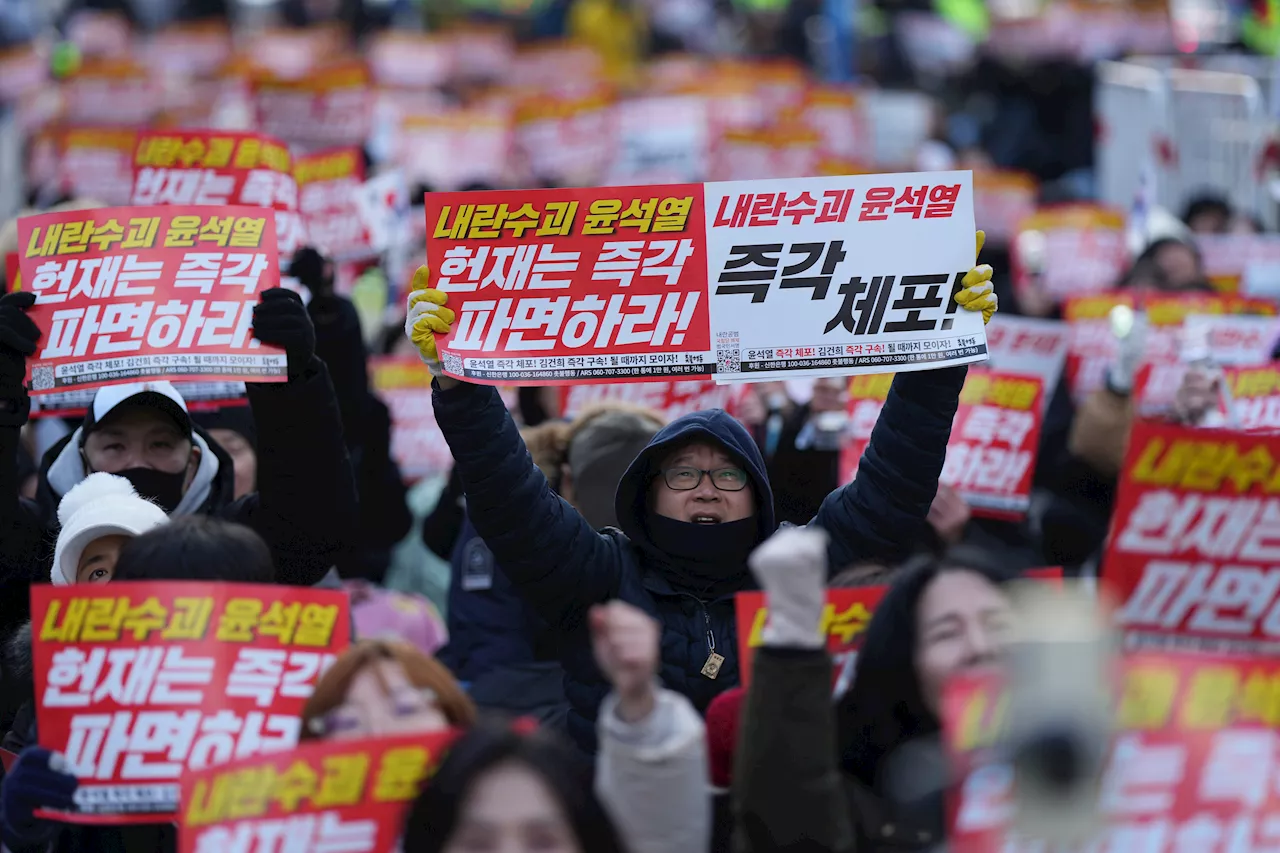 South Korean investigators request that impeached president appear for questioning over martial lawSEOUL, South Korea (AP) — South Korean law enforcement authorities will request that impeached President Yoon Suk Yeol appear for questioning this week over his short-lived martial law decree as they expand a probe into whether his ill-conceived power grab amounted to rebellion.
South Korean investigators request that impeached president appear for questioning over martial lawSEOUL, South Korea (AP) — South Korean law enforcement authorities will request that impeached President Yoon Suk Yeol appear for questioning this week over his short-lived martial law decree as they expand a probe into whether his ill-conceived power grab amounted to rebellion.
Read more »
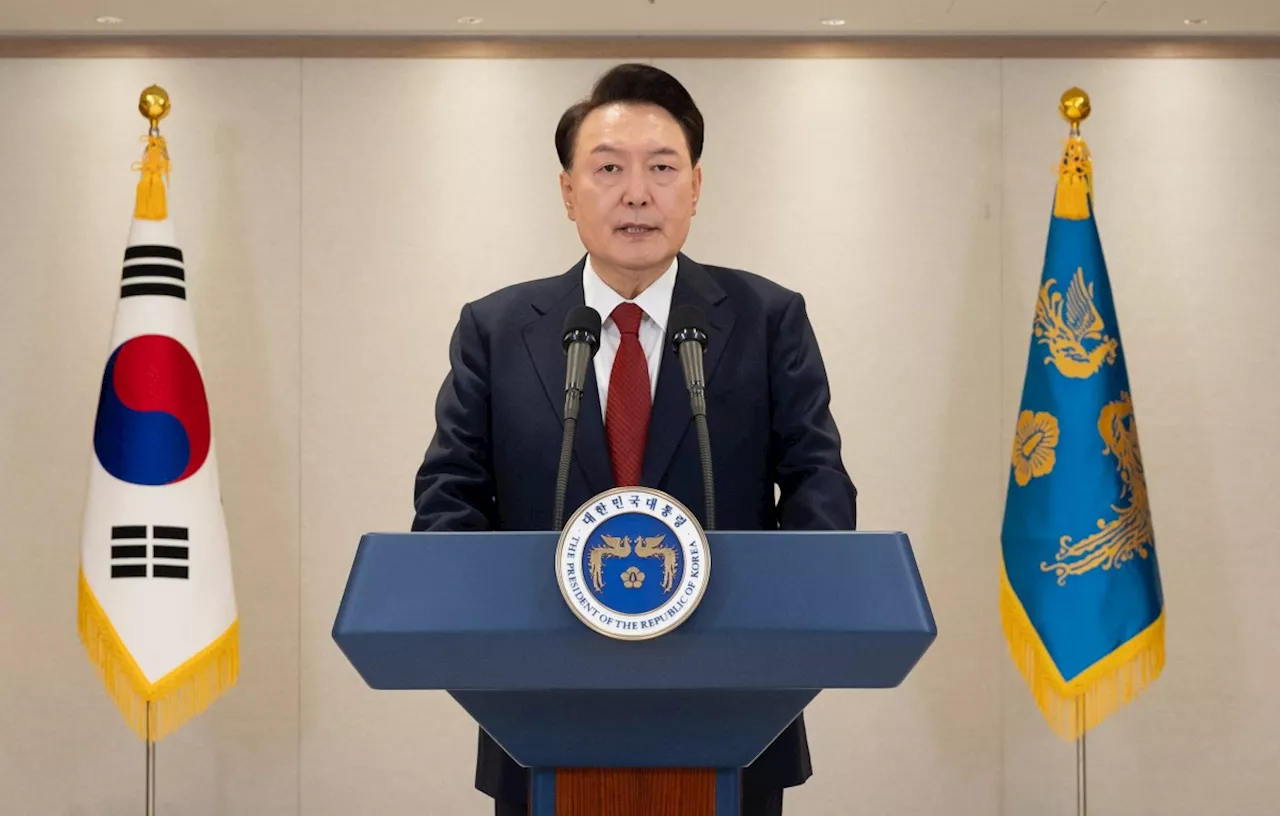 South Korea’s Yoon resists questioning over failed martial law bidYoon, suspended from office by parliament since Saturday, faces concurrent probes over alleged insurrection by both South Korean prosecutors and a joint
South Korea’s Yoon resists questioning over failed martial law bidYoon, suspended from office by parliament since Saturday, faces concurrent probes over alleged insurrection by both South Korean prosecutors and a joint
Read more »
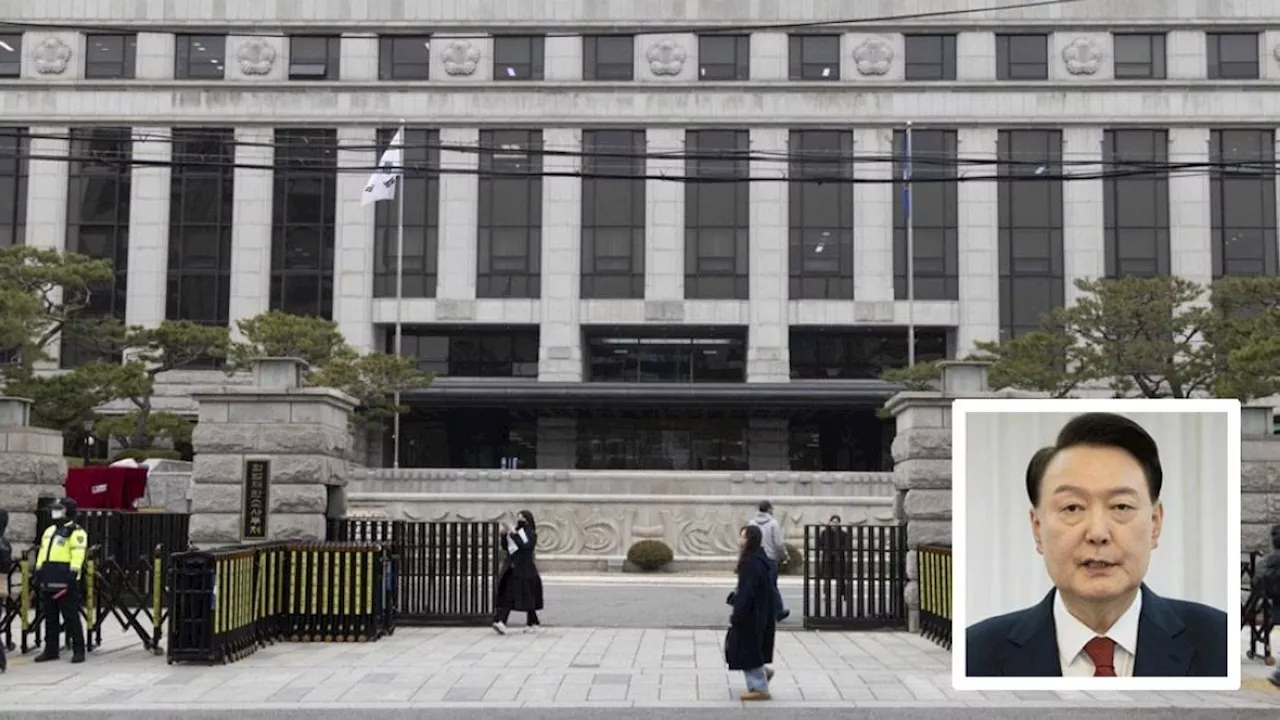 Yoon resists questioning over martial lawSEOUL — Impeached South Korean President Yoon Suk Yeol resisted investigators' calls on Monday for him to answer questions over his failed bid to declare martial law this month.
Yoon resists questioning over martial lawSEOUL — Impeached South Korean President Yoon Suk Yeol resisted investigators' calls on Monday for him to answer questions over his failed bid to declare martial law this month.
Read more »
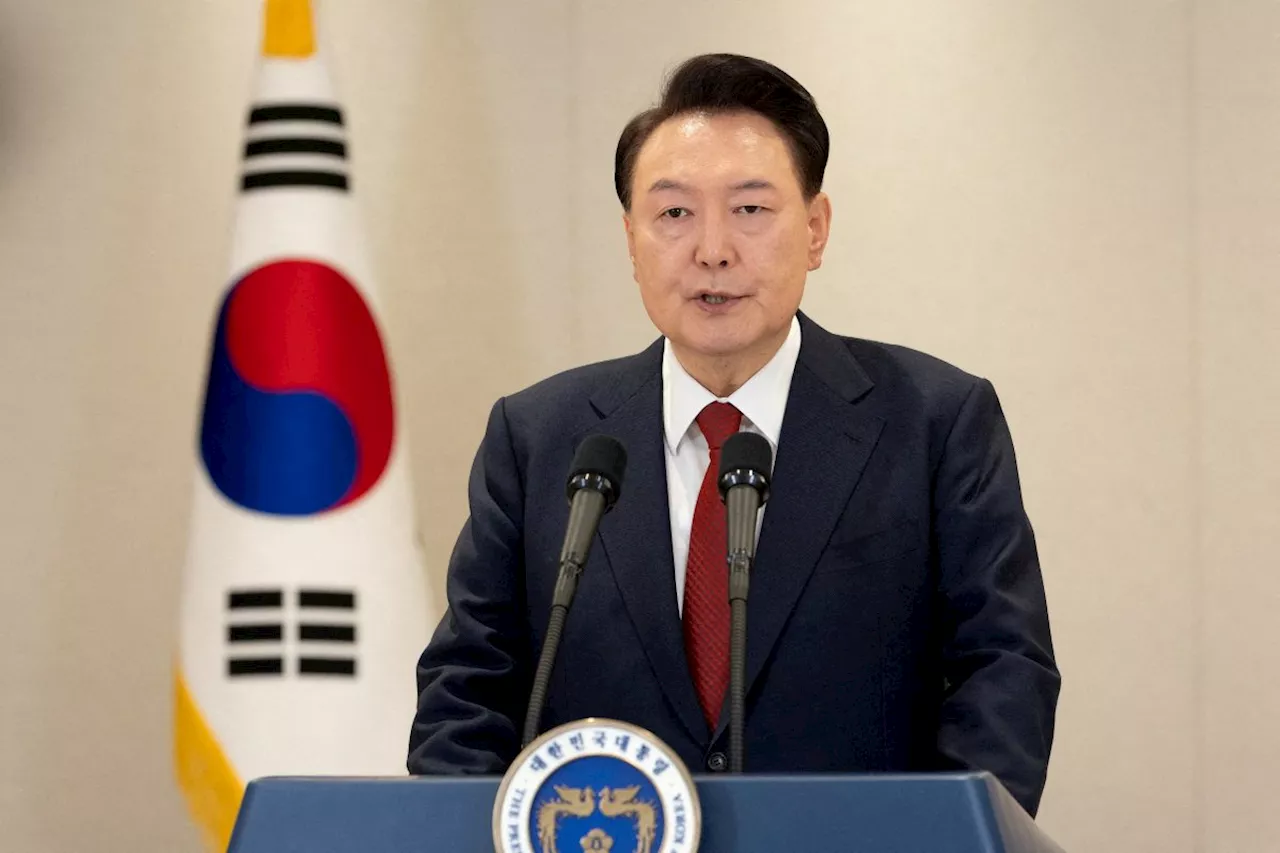 South Korean Authorities Attempt Second Raid of Presidential Office in Martial Law ProbeSouth Korean authorities launched a second attempt on Tuesday to search the presidential office and gather evidence related to President Yoon Suk-yeol's controversial bid to impose martial law. A joint investigation team comprising police and the Corruption Investigation Office for High-ranking Officials (CIO) sought access to computer servers of the presidential office's security service to obtain phone records, including one belonging to the police commissioner. This follows a previous unsuccessful attempt on December 11, during which the presidential office voluntarily submitted some data. President Yoon, who was impeached by parliament on Saturday, remains largely inaccessible to authorities.
South Korean Authorities Attempt Second Raid of Presidential Office in Martial Law ProbeSouth Korean authorities launched a second attempt on Tuesday to search the presidential office and gather evidence related to President Yoon Suk-yeol's controversial bid to impose martial law. A joint investigation team comprising police and the Corruption Investigation Office for High-ranking Officials (CIO) sought access to computer servers of the presidential office's security service to obtain phone records, including one belonging to the police commissioner. This follows a previous unsuccessful attempt on December 11, during which the presidential office voluntarily submitted some data. President Yoon, who was impeached by parliament on Saturday, remains largely inaccessible to authorities.
Read more »
